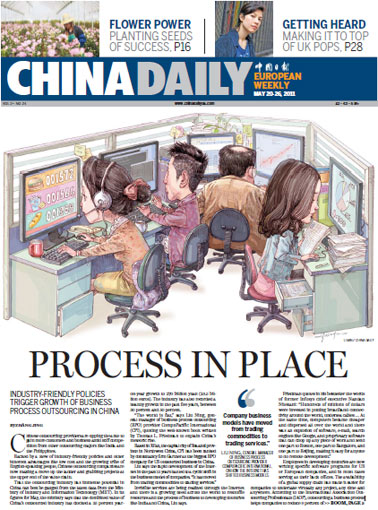Economy
There is no eurozone debt crisis: OECD chief
Updated: 2011-05-20 22:31
(Xinhua)
PARIS - The secretary-general of the Orgnization for Economic Cooperation and Development on Friday voiced confidence in the euro's bright future, saying the current debt problem should not be called a "eurozone debt crisis."
"There is no eurozone debt crisis except in the larger sense of being an OECD debt - not crisis - but debt problem, debt challenge," Angel Gurria said at OECD headquarters in Paris.
"The OECD has 100 percent debt to GDP ratio today and that's obviously unsustainable," he said, "Problem, it's still growing!"
However, European countries have respective problems not linking to the others, Gurria said.
To explain the current situation, the OECD chief laid out five main challenges for Spain: deficit, the flexibility of labor market, pensions and retirements, financial system, and the collective bargaining. He said most of Spain's problems are being addressed.
Spain is among some other European countries apart from Greece, Ireland and Portugal, which also have risks to weigh down the euro zone debt burden.
According to the OECD chief, the current problem is tricky to solve in a short time as each country has its own reason for its present situation. Meanwhile, new problematic issues continue to come in, therefore "rounds of efforts" are needed, which should take time, Gurria said.
"There is general problem of fiscal consolidation of bringing down the debt levels of all the countries," Gurria said. "But there are only three countries (Greece, Ireland and Portugal) that have problems of public finance for different reasons."
"From my point of view, the Europeans now, they are building a very strong safety net, but they are also working on making sure that nobody has to use the safety net," he said, referring to around 1trillion euros approved last week by Euroepan leaders as a huge rescue package to regain credibility with investors.
While admitting the debt-related problems are detrimental to the euro, the OECD chief insisted it is "not in the sense of saying that the euro is in danger ... the euro is going to continue to grow, the euro is going to have more members joining the zone, the euro is going to continue to be more and more a reserve currency in the world ... and they are going to be addressing these issues."
"The problem is that, Frankly, they don't have a lot of experience in dealing with that crisis in Europe," he said. "But now they changed the rules and they are addressing it."
Debt problems have troubled the euro zone and even the European Union for months since Greece's sovereign debt risks default. Government leaders and the International Monetary Fund are seeking ways to prevent a Greek default, which has the market widely concerned.
E-paper

Thawing out
After a deep freeze in sales during the recession, China’s air conditioner makers are bouncing back
Cool Iron lady
Of good and evil
Build on security initiatives
Specials

Memory lanes
Shanghai’s historic ALLEYS not just unique architecture but a way of life

Great expectations
Hong Kong-born singer songwriter rises to the top of the UK pops.

A diplomat of character
Belgian envoy draws on personal fascination to help build China ties.
